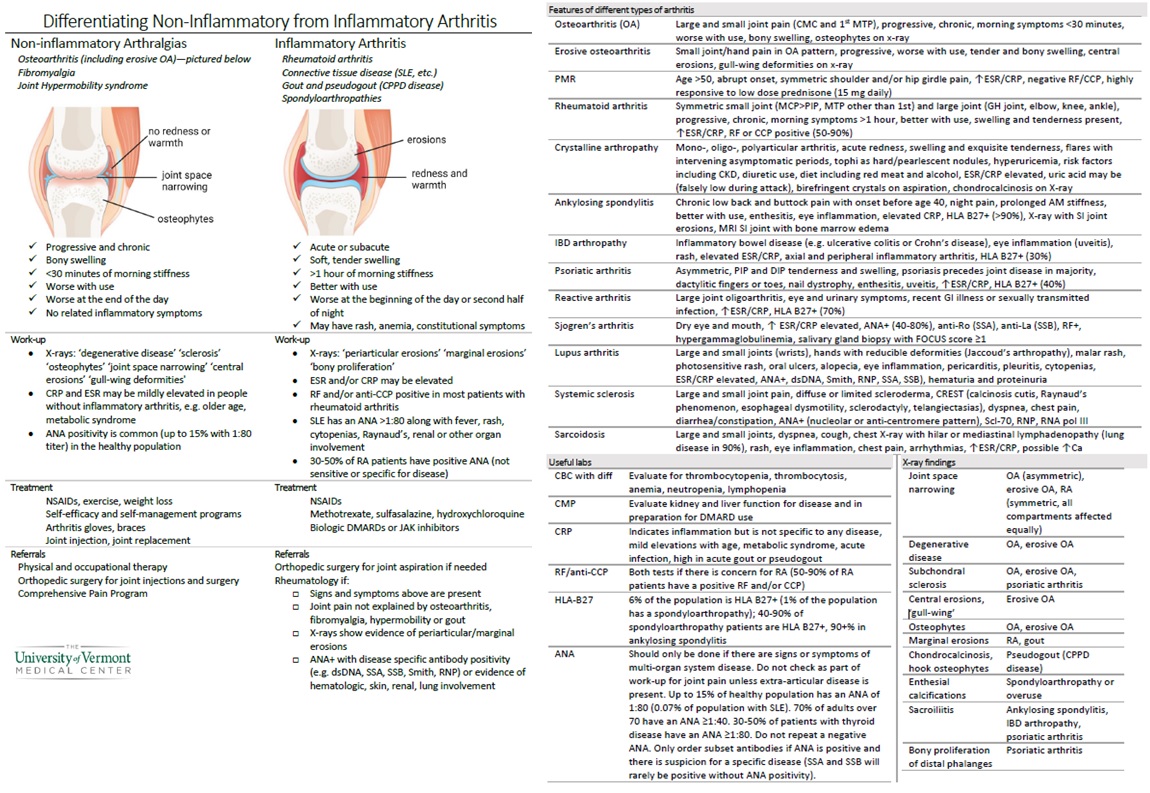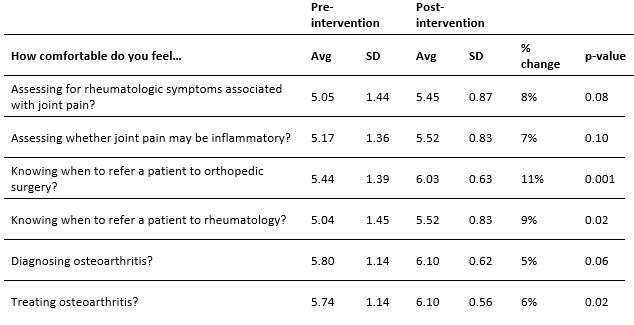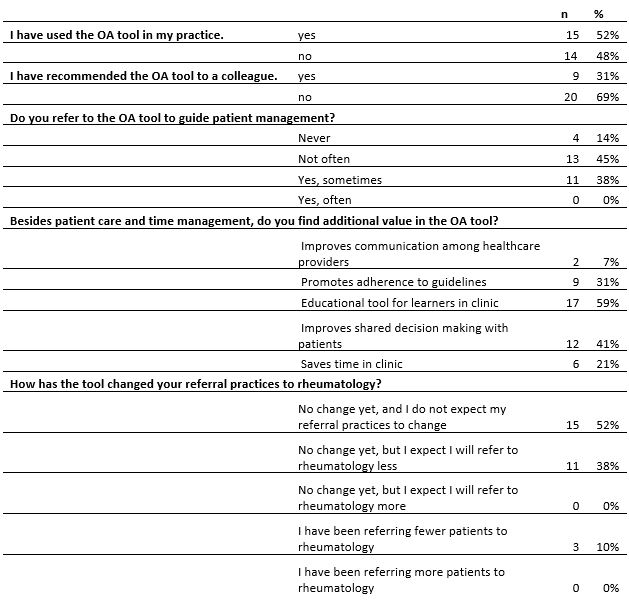Session Information
Session Type: Poster Session B
Session Time: 10:30AM-12:30PM
Background/Purpose: Osteoarthritis is the most common form of arthritis and its prevalence is increasing. As a non-inflammatory type of arthritis, it can be managed in the primary care setting with nonsteroid anti-inflammatory drugs, physical and occupational therapy, self-efficacy programs, and orthopedic referral for injections or surgery. At the University of Vermont Health Network, only 1 in 4 patients seen for a primary complaint of joint pain have inflammatory arthritis, and our wait time for new patients is 9 months. To reduce unnecessary referrals for non-inflammatory joint pain and improve access to rheumatology, we developed an educational tool for primary care providers to help with diagnosis, work-up, management and referrals for joint pain.
Methods: We conducted a chart review of adult patients seen between 2020 and 2022 with a principal diagnosis of osteoarthritis. Based on a pilot survey of primary care providers, we developed and distributed a short, printed and digitally available educational tool to help diagnose and manage non-inflammatory joint pain. The utility and impact of the tool was assessed with pre- and post-intervention surveys.
Results: Osteoarthritis was diagnosed at the first patient visit in 390 joint pain referrals between 2020-2022 (9% of all new patient referrals). Only 5% of these patients were seen again in rheumatology clinic and 3% were found to have an inflammatory disease as a primary or concurrent diagnosis. In the pre-intervention survey, clinicians (n=94 of 221 surveyed) were least comfortable with knowing when to refer to rheumatology and most comfortable with diagnosing osteoarthritis. The osteoarthritis tool was distributed to primary care providers at all 28 clinics in the network. Preliminary 2-month follow-up survey data (n=29 of 205 surveyed) indicated improvements in comfort with treating osteoarthritis (6% improvement, p=0.02) and knowing when to refer to orthopedics (11%, p=0.001) and rheumatology (9%, p=0.03). Over half of clinicians (52%) reported using the tool in their practice and described value in using the tool in medical education (59%) and shared decision making (41%). After using the tool, 38% anticipate a reduction in referrals to rheumatology and 10% have already referred fewer patients to rheumatology.
Conclusion: To address unnecessary rheumatology referrals for non-inflammatory joint pain, we developed and distributed an educational tool to primary care providers. Pre- and post-intervention surveys indicate this is an effective approach to improving PCP comfort in diagnosis, treatment, and referrals for non-inflammatory joint pain with anticipation of fewer referrals to rheumatology resulting in improved access to care.
To cite this abstract in AMA style:
Morrison T, Giangregorio L, Hadley-Strout E, Gosselin J. Primary Care Provider Educational Tool to Improve Osteoarthritis Management in the Primary Care Setting [abstract]. Arthritis Rheumatol. 2024; 76 (suppl 9). https://acrabstracts.org/abstract/primary-care-provider-educational-tool-to-improve-osteoarthritis-management-in-the-primary-care-setting/. Accessed .« Back to ACR Convergence 2024
ACR Meeting Abstracts - https://acrabstracts.org/abstract/primary-care-provider-educational-tool-to-improve-osteoarthritis-management-in-the-primary-care-setting/



